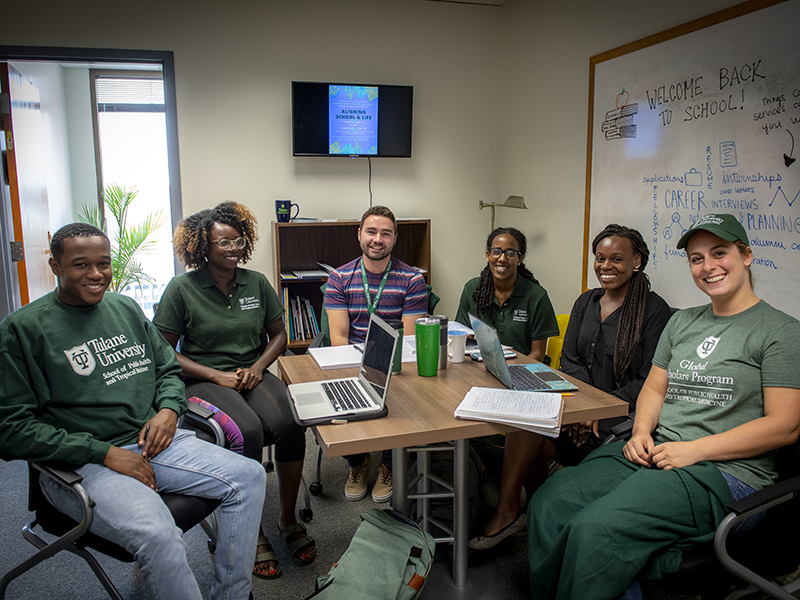
In 1912, the Tulane University School of Public Health and Tropical Medicine (SPHTM) became the very first school of public health in the country. In fact, Tulane’s commitment to public health goes back to 1834 when the university was founded to address concerns of cholera, yellow fever, smallpox, and malaria. Today Tulane SPHTM continues to live out that mission with research and education that spans the gamut of specialty areas in public health, from biostatistics to maternal and child health, epidemiology to nutrition, health policy to clinical research, environmental health sciences to violence prevention, and much, much more.
Students learn from faculty who are actively engaged in the health needs of communities around the corner and around the globe. We’ve long been known for our hands-on approach to public health education, and employers routinely report that our graduates are prepared and ready to work on day one. This approach is true whether students learn in person or through one of our growing list of high-caliber online programs.
The school is located in the culturally rich city of New Orleans, Louisiana, and we are the leading school of public health in the Gulf Coast. We’re dedicated to improving the health and wellbeing of residents throughout the region and serving as a collaborative partner on initiatives to address the inequities plaguing our communities. At the same time, we have long held a wide and diverse global footprint. Faculty conduct research and operate programs that prioritize capacity building and sustainability in numerous countries around the world, such as the Democratic Republic of the Congo, Mali, Zambia, Peru, Bolivia, Taiwan, and Cambodia, just to name a few.
The school’s strengths are diverse and many. As the first school of tropical medicine in the country, we have studied vector-borne diseases extensively, with ongoing research in malaria, dengue, Ebola, and several neglected tropical diseases. We also have a strong focus on cardiovascular disease, health equity and disparities, reproductive health, and disaster response and displacement, along with growing strengths in genomics, epigenetics, and other aspects of personalized health and medicine. Topics like climate change and health, data science and artificial intelligence, and cancer prevention and control will offer interdisciplinary options to faculty and students alike in the coming years.
Our diverse faculty are committed public health professionals regularly recognized among their peers with awards, prestigious memberships, and important roles and responsibilities on editorial boards and within associations. They take their job preparing the next generation of public health professionals very seriously. Our students gain a very skills-based education here, and we are fortunate to count ministers and commissioners of health, deans of schools of public health, and presidents and CEOs of health organizations among our alumni. No matter what their role, all of our graduates go on to do important, life-changing work.
Join more than a century’s worth of Tulane graduates who have arrived with passion and left with purpose as leaders in public health.
